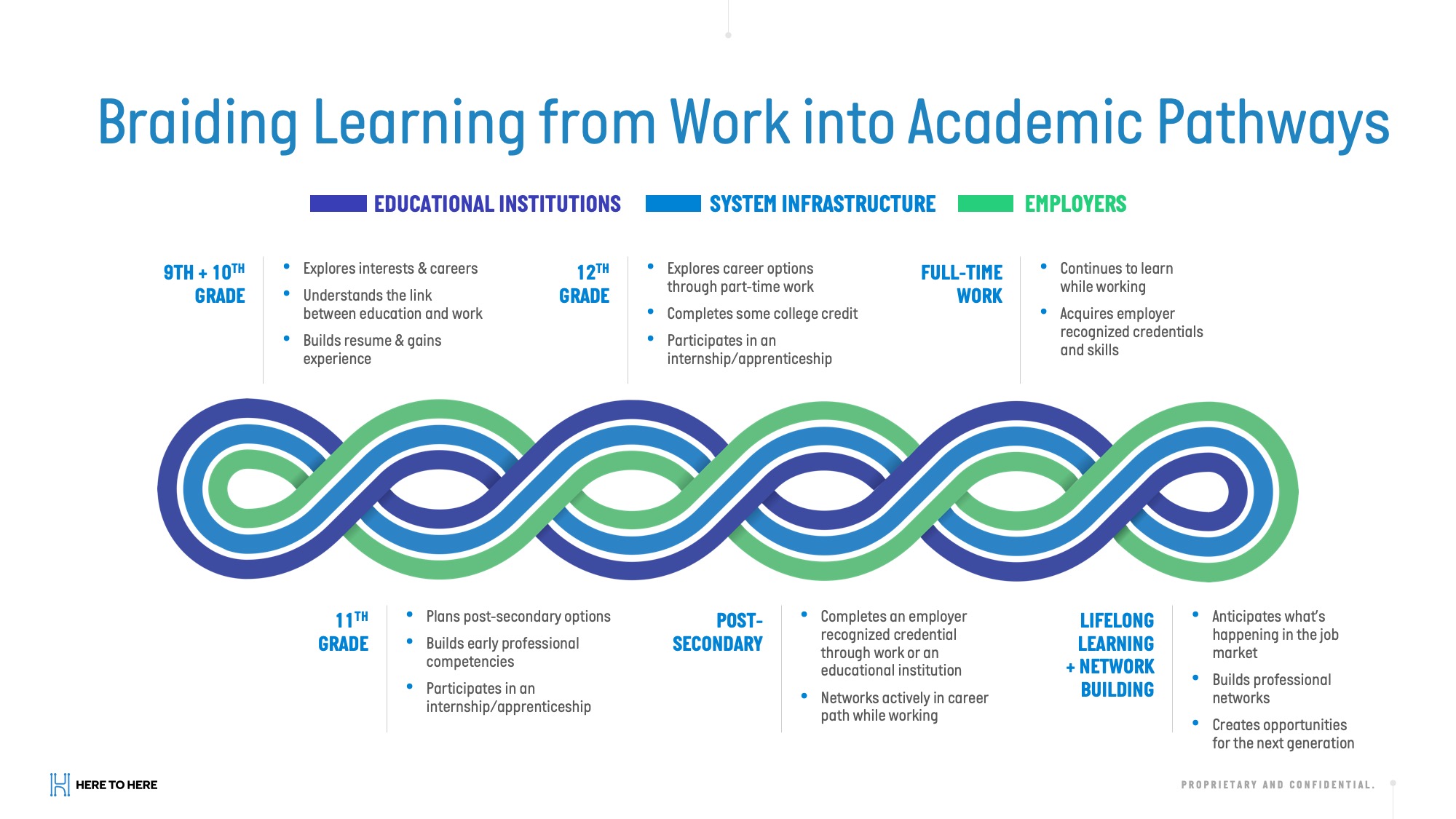We believe the talent of young people fuels our economy and our world. Yet entire communities are economically insecure because we do not enable all young people to develop and contribute their talent. Too often, traditional career paths reflect the bias within our nation—stifling rather than cultivating the ambitions of Black and Brown students.
HERE to HERE champions young people by working to redefine the systems that unfairly burden Black and Brown students as they pursue their career ambitions. We understand that the issues are complex and interrelated. That’s why we create effective partnerships, prioritize the thoughts and opinions of young people, and mobilize people and organizations—demonstrating how our collective efforts to create a just and inclusive talent system will create lasting change. How we reinvent these systems determines our future.
It won’t be easy, but when we work together to unlock the talent of an entire generation, our community is stronger, our businesses benefit, and all of New York thrives.
Why We Do What We Do
In many low-income neighborhoods, such as the South Bronx, a young person’s chance of getting a high school degree and an employer recognized postsecondary credential is, at best, 20%. Roughly 65% of American jobs today require some sort of postsecondary credential, and for jobs offering a family-sustaining wage, the percentage is even higher. Focusing solely on college and academic preparation, without connection to critical early work experience as well as the development of professional networks, is not the answer.
Emphasizing college and academic preparedness without comparable emphasis on career and work readiness has created a number of unintended consequences. Today, students who do not complete college are often burdened with debt and remain underqualified for many positions that have traditionally not required a degree. For young people who do complete college, many—especially those in under-resourced neighborhoods—remain under-employed and unable to access promising careers because securing entry-level, career-routed positions depends as much on your social network and access to opportunity as it does on any credential.
Connecting learning to work creates more positive outcomes for students, as well as employers, and the economy. Achieving racial and economic equity requires educators and employers to partner more intentionally, and to not assume all young people have equal access to opportunity. Making work-based learning available to all students, beginning at least as early as high school, is a win-win-win that benefits students, employers, and the entire community. When we braid school and workplace learning together, students are well-positioned to secure rewarding careers, employers are offered a qualified and diverse talent pipeline, and the community is better equipped to respond to today’s rapidly changing labor market. This model is a path toward a more equitable, inclusive, and thriving economy.

